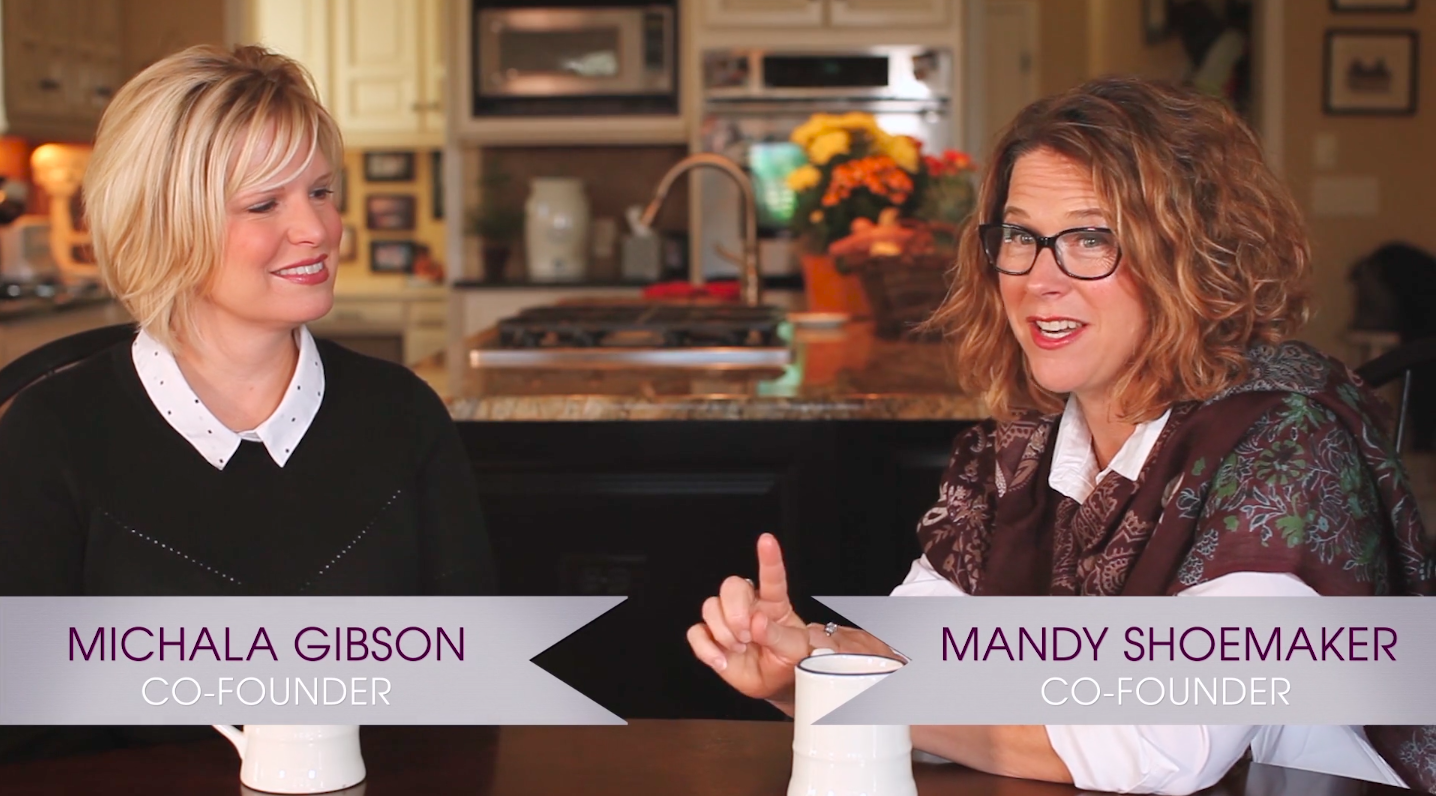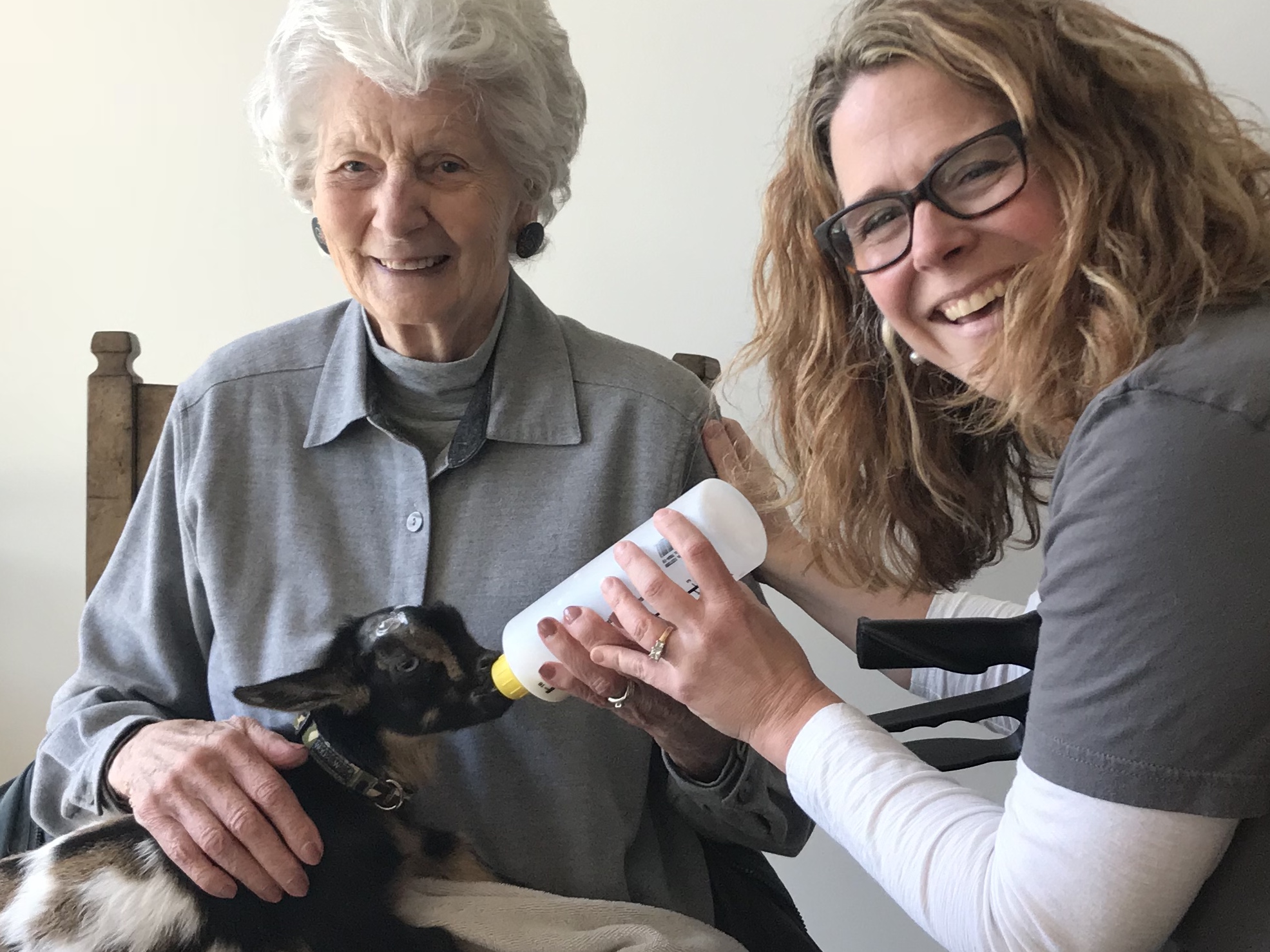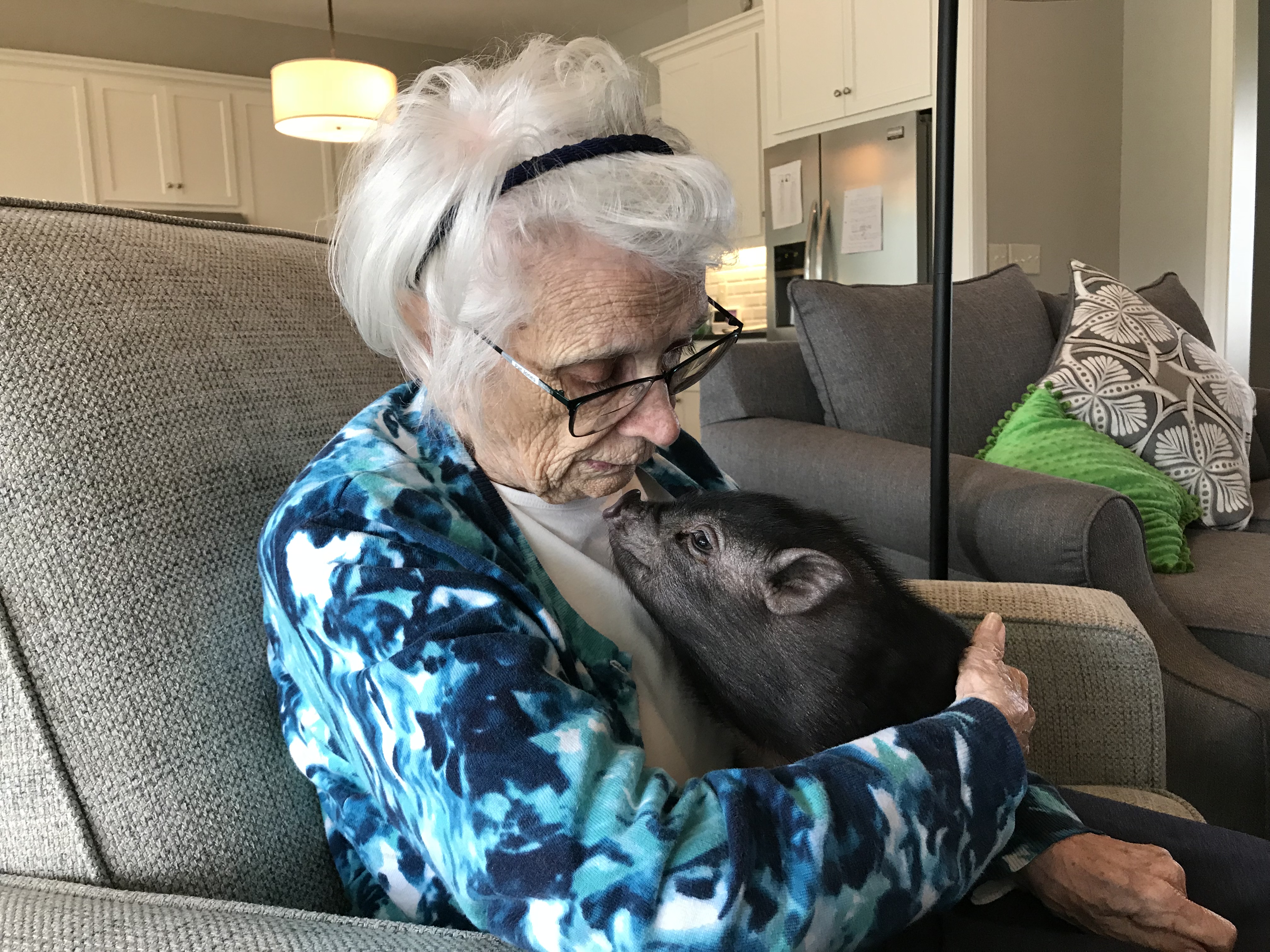While it’s not uncommon to find a pet cat or a dog roaming around a memory care community, pigs and goats are a different story.
But visits from these and other barnyard animals are a common occurrence for residents of Prairie Elder Care, a company that has four memory care group homes in Overland Park, Kansas. Earlier this month, Prairie Elder Care held a grand opening for Prairie Farmstead, a memory care concept designed to engage older adults in an active, farm-like environment.
Residents who live at the newly opened community are immersed in the farm lifestyle through hands-on activities and visits with small animals such as dwarf goats, a miniature pig and chickens. The idea behind 
Senior Housing News caught up with the duo to talk about the challenges of running a senior living community while caring for farm animals, and how they think the unique memory care model helps them stand out in a crowded local senior living landscape.
What is life like at a Prairie Elder Care group home?
Shoemaker: Most of our residents don’t stay in their rooms a whole lot, and the designs of our homes push them out into the living area.
The kitchen is the focal point of the homes. Our residents, for the people who want to, will help set the table, wash dishes, help prepare meals, whatever is a meaningful thing for them to do. Our mission is to give back to our residents community, connection, and control. And we feel like having something normal to do really gives people that sense of control.
And the foundation of our model is control. In a memory care setting, control does not equal independence. Being left to their own devices, residents may actually have more feelings of frustration and feelings like they’re out of control. By knowing their stories, and by knowing the details of their preferences and lives, we can be better equipped to proactively meet their needs so they feel in control.
We also were looking for ways to, for lack of a better way to describe it, set the reset button for our residents. For instance, if somebody’s having a really hard time, we can sit by the koi pond, we can go take the pig out, we can go feed the chickens. There are things to take their mind off of what is really bothering them or causing them anxiety. So, our end goal is using fewer medications, and giving people a wider range of opportunities.

Gibson: We are the only home in Kansas or Missouri that is on the Eden Registry. Their first principle is that loneliness, helplessness and boredom are where the bulk of suffering for elders come from. And so, having those animals is another source of companionship, and having the gardens and the koi pond are other things you can feel connected with and continue to build that community.
Gibson: It’s also about giving them daily tasks, rather than living in a hotel kind of setting where everybody is taken care of and you don’t have a purpose. That’s OK when you’re on vacation, but for living your life, you need to have purpose.
How many animals does Prairie Elder Care work with?

Gibson: At our other homes we have a bunny, a cat and a Great Pyrenees. We also have fish tanks.
Shoemaker: The mini pig came from the top breeder in the country, [as rated by] the American Mini Pig Association. She has developed a program for training the pigs as certified therapy pigs.
Gibson: Pigs are sometimes used in kind of the same role as a therapy dog would be used. They can help with minimizing anxiety or agitation. One of the other pigs in this same litter was going to a veteran who was getting him for that purpose.
Where do all these animals live?
Shoemaker: The goal is for them to live on the Farmstead. Each house has its own fenced backyard, which is just like a regular small-sized back yard with a secured fence. Residents can go out there on their own. But the goats actually back up to the fence, so if somebody wanted to go down to the goat pen on their own and pet the goats through the fence, they can.
The idea is that everything is very close and visible from the house.
Who takes care of them? How much does all this cost?

It’s a much more substantial financial commitment for our operations, and for a time commitment from us. It’s what keeps the Farmstead from being replicable. Last night was the first night that I haven’t gone over at eight at night to feed the goats and put them up. It takes commitment to working well beyond a normal job.
Do you grow anything at Prairie Farmstead?
Shoemaker: That’s in progress. Our first residents moved in April 16.
But we’re going to be putting in an orchard. There will also be a sensory garden next to the koi pond, and on the other side of the barn we will grow tomatoes. Our residents will be able to plant, harvest, and pull weeds, for everyone who is able. Most of our garden beds are raised to a height that is accessible from a wheelchair. But we will also have a large tilled garden area.
Our goal is to have tomatoes coming out of our ears. And zucchini, cucumbers, and sweet corn.
Does having the farmstead help Prairie Elder Care stand out from its competitors?
Shoemaker: In Kansas, particularly in Johnson County, there are no fewer than 10 new facilities being built. Whether they’re standalone memory care or a CCRC, or whatever. Luckily, what we do is different. Up until opening the Farmstead, we rarely had a vacancy that lasted more than a week. We remain at around 95% occupied. With the Farmstead opening, we have filled very quickly, which is good.
Gibson: That’s also why it’s so important that we provide a higher level of care.
If that success keeps up, any plans to expand this model?
Gibson: We will probably build another home on the Farmstead. We just want to share our engagement model. We don’t have an interest in franchising because we can’t be there.
Shoemaker: We have a book coming out called “Now is Found” that does lay out our engagement model and how it can benefit people living in larger communities, or benefit families caring for somebody at home. Working on developing a training for that model is kind of how we are looking to impact dementia care on a greater scale.
Really helping people have the best chance of success starting off, we’d be interested in that. Because we definitely have an interest in not just providing great care to people who live in a Prairie home or on the Prairie Farmstead, but helping great care be delivered across the country.
This interview was edited for clarity and length.
Read our most recent From the Front Lines interviews:
Mather Move-in Coordinator Acts as Adult Daughter
Shakespeare Fest Founder Embraces CCRC Role
Preserving the Past While Razing a 70-Year-Old CCRC

